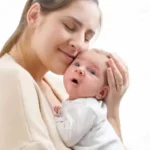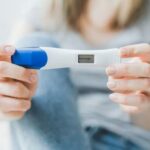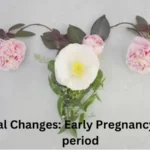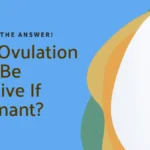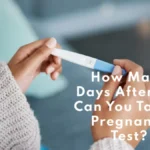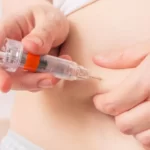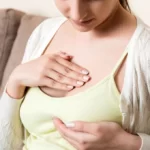
When it comes to conceiving a child, understanding the connection between ovulation and pregnancy is crucial. Ovulation is the process in which a mature egg is released from the ovary, making it available for fertilization. Typically, ovulation occurs around the middle of a woman’s menstrual cycle. But what happens if you’re not ovulating? Can you still get pregnant? In this article, we’ll delve into the topic of can you get pregnant when not ovulating and explore the factors that affect fertility.
Related: Can You Take Mucinex To Get Pregnant?
Can You Get Pregnant When Not Ovulating?
The question that often arises in discussions about conception is can you get pregnant when not ovulating. Let’s delve into this topic and find out the truth.
Understanding Ovulation and Fertility
Ovulation is a crucial aspect of a woman’s reproductive cycle. It occurs when a mature egg is released from the ovary and travels down the fallopian tube, where it can be fertilized by sperm. If fertilization occurs, the egg implants itself into the uterine lining, leading to pregnancy.
The Relationship Between Ovulation and Pregnancy
While ovulation is essential for pregnancy, it’s important to note that the fertile window—the period during which you have the highest chance of getting pregnant—extends beyond the ovulation day itself. Sperm can survive in the reproductive tract for up to five days, waiting for the egg to be released. This means that if you have intercourse a few days before ovulation or shortly after, it’s still possible to conceive.
Anovulatory Cycles: When Ovulation Doesn’t Occur
In some cases, women may experience anovulatory cycles, meaning that ovulation does not occur. Factors such as stress, hormonal imbalances, or certain medical conditions can disrupt the regular release of eggs. During an anovulatory cycle, it is not possible to conceive naturally since there is no egg available for fertilization.
Unpredictable Ovulation: Irregular Cycles
Some women have irregular menstrual cycles, where ovulation does occur but at unpredictable intervals. This can make it challenging to determine the fertile window and pinpoint the best time to conceive. Tracking basal body temperature, cervical mucus changes, and using ovulation predictor kits can help increase the chances of getting pregnant during irregular cycles.
The Role of Sperm Longevity
While ovulation is necessary for pregnancy, the longevity of sperm also plays a crucial role. Sperm can survive in the female reproductive tract for several days, waiting for an egg to be released. If you have intercourse a few days before ovulation, the sperm may still be present when the egg is released, increasing the likelihood of fertilization.
Assisted Reproductive Techniques: A Solution for Anovulatory Women
For women who do not ovulate regularly or at all, assisted reproductive techniques can provide options. Treatments such as in vitro fertilization (IVF) or ovulation induction using fertility medications can help stimulate the ovaries to produce eggs, increasing the chances of conception.
Can You Get Pregnant Anytime of the Month?
In order to answer this question, it’s important to understand the menstrual cycle and the process of ovulation. The menstrual cycle typically lasts about 28 days, although it can vary from person to person.
During the menstrual cycle, several hormonal changes occur in a woman’s body. Around the middle of the cycle, typically around day 14 in a 28-day cycle, ovulation occurs. Ovulation is when the ovaries release an egg, which then travels down the fallopian tubes, making it available for fertilization by sperm.
Sperm can survive in the female reproductive system for several days, and the released egg can also survive for about 24 hours. This means that there is a fertile window of a few days leading up to and including the day of ovulation, during which pregnancy is possible.
However, it’s important to note that every woman’s menstrual cycle is unique, and factors such as cycle length and the timing of ovulation can vary. Additionally, sperm survival and egg viability can also differ among individuals. Therefore, it is possible for some women to conceive outside of the typical fertile window.
To maximize the chances of pregnancy, it is often recommended to have regular intercourse throughout the menstrual cycle, but particularly during the fertile window.
Related: Can You Take 2 Birth Control Pills In One Day?
What are the Symptoms of Anovulation?

Anovulation, which refers to the absence or lack of ovulation, can occur for various reasons. Some common symptoms that may indicate anovulation include:
- Irregular or absent menstrual periods: One of the primary signs of anovulation is irregular or missed periods. If you consistently have long cycles or experience months without a period, it could indicate a lack of ovulation.
- Changes in cervical mucus: During ovulation, cervical mucus typically becomes thin, slippery, and clear, resembling the consistency of egg whites. If you don’t observe these changes in cervical mucus, it may suggest anovulation.
- Absence of basal body temperature (BBT) changes: Tracking your basal body temperature can help determine if ovulation is occurring. After ovulation, BBT rises slightly and remains elevated for the remainder of the cycle. If you don’t observe this temperature shift, it could indicate anovulation.
- Lack of positive ovulation predictor kit (OPK) results: OPKs detect the surge in luteinizing hormone (LH) that occurs just before ovulation. If you consistently get negative results on OPKs, it may suggest a lack of ovulation.
- Absence of other ovulation symptoms: Some women experience mild pelvic pain or discomfort, known as mittelschmerz, during ovulation. If you don’t have these sensations, it could indicate anovulation.
When is the Least Likely Time to Get Pregnant?
The least likely time to get pregnant is typically during the infertile phase of the menstrual cycle. This phase refers to the time when the woman is not ovulating and is less likely to conceive. The infertile phase can vary depending on the individual’s menstrual cycle length, but generally, it occurs before and after ovulation.
The most fertile time for pregnancy to occur is during the fertile window, which includes the days leading up to and including ovulation. This is when the released egg is available for fertilization and can survive for about 24 hours. Additionally, sperm can survive in the female reproductive system for several days, further extending the fertile period.
To determine the least likely time to get pregnant, it’s important to understand the menstrual cycle and identify the fertile and infertile phases. If a woman has a regular 28-day cycle, the least likely time for pregnancy would be in the early days of the cycle, shortly after menstruation. However, it’s important to note that even during the infertile phase, pregnancy is still possible, though the chances are significantly lower compared to the fertile window.
How Many Days After Ovulation Can You Get Pregnant?
After ovulation, the released egg survives for about 24 hours. However, the sperm can live inside the female reproductive system for several days, typically around 3-5 days. This means that pregnancy can occur if intercourse takes place in the days leading up to ovulation, as well as on the day of ovulation itself.
To maximize the chances of pregnancy, it is often recommended to have regular intercourse throughout the fertile window, which includes the days leading up to and including ovulation. This is because the sperm can wait in the reproductive system for the egg to be released.
It’s important to note that every woman’s cycle is unique, and the timing of ovulation can vary. Tracking ovulation signs such as changes in cervical mucus, basal body temperature, or using ovulation predictor kits can help determine the fertile window and increase the chances of conception.
Can You Get Pregnant 10 Days Before Your Period?
Getting pregnant 10 days before your period is less likely but still possible. The menstrual cycle can vary in length among individuals, but on average, it is about 28 days long. In a typical cycle, ovulation occurs approximately 14 days before the start of the next period.
If you have a shorter menstrual cycle, for example, 24 days, ovulation might occur around day 10 of your cycle. Since sperm can survive in the female reproductive system for several days, having unprotected intercourse around this time could result in pregnancy. Additionally, some women may have irregular cycles or experience variations in their ovulation timing, making it harder to predict when ovulation occurs.
If You Ovulate in the Morning, Can You Get Pregnant that Night?
Yes, it is possible to get pregnant on the same day you ovulate, even if you ovulate in the morning. After the ovaries release an egg during ovulation, it travels down the fallopian tubes and can be fertilized by sperm. Sperm can survive in the female reproductive system for several days, so if you have intercourse later that same day, the sperm can potentially fertilize the egg.
While the egg typically survives for about 24 hours after ovulation, it’s important to note that the exact timing of ovulation can vary among individuals. Additionally, sperm can survive for several days in the reproductive system, increasing the chances of pregnancy if intercourse occurs shortly after ovulation.
Conclusion
Ovulation is a fundamental process in the journey to conception. While getting pregnant when not ovulating is unlikely, understanding the factors that affect fertility can help you make informed decisions about family planning. Monitoring your menstrual cycle, tracking fertility signs, and seeking medical advice when needed can increase your chances of conceiving. Remember, each person’s reproductive journey is unique, and it’s essential to approach it with patience and a positive mindset.
Frequently Asked Questions (FAQs)
Can You Get Pregnant When Not Ovulating?
No, pregnancy cannot occur when ovulation doesn’t take place, as there is no egg available for fertilization.
Is It Possible to Predict Ovulation?
While predicting ovulation can be challenging, there are methods you can use to increase your chances of determining when it may occur. Tracking your menstrual cycle, observing changes in cervical mucus, and monitoring basal body temperature can provide valuable insights into your ovulation patterns.
Can Stress Affect Ovulation?
Yes, stress can disrupt the hormonal balance in your body, potentially affecting ovulation. High levels of stress can interfere with the regular release of eggs, making it more difficult to conceive. It’s important to find ways to manage stress and create a supportive environment for fertility.
Can You Get Pregnant Right After Your Period?
While it’s less likely to conceive immediately after your period, it’s not impossible. Sperm can survive in the reproductive tract for several days, so if you have a short menstrual cycle, it’s possible to ovulate soon after your period ends. Understanding your unique cycle and tracking fertility signs can help you determine your fertile window.
Are there Natural Remedies to Promote Ovulation?
Some natural remedies and lifestyle changes may support healthy ovulation. Eating a balanced diet, maintaining a healthy weight, managing stress levels, and avoiding excessive alcohol and caffeine consumption can positively impact ovulation. However, it’s crucial to consult with a healthcare professional for personalized advice.
Can Birth Control Methods Affect Ovulation?
Certain birth control methods, such as hormonal contraceptives like the pill, patch, or hormonal IUD, work by preventing ovulation. Once you stop using these methods, your ovulation typically resumes. However, it may take some time for your body to regulate its natural hormone production and return to regular ovulation.

